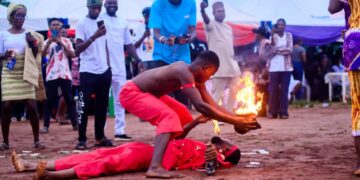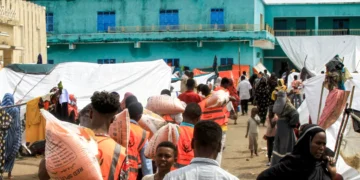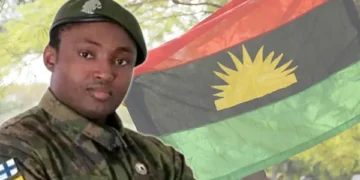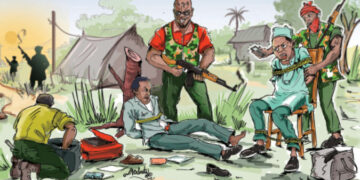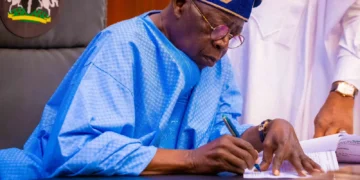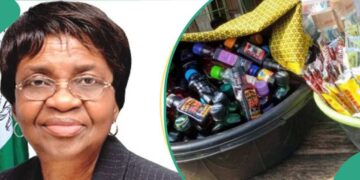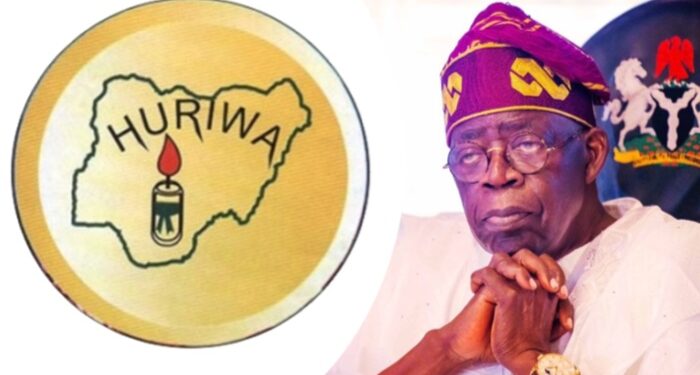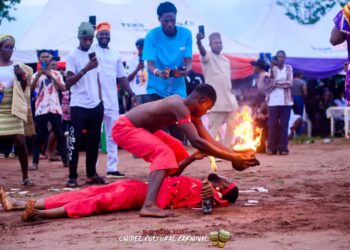The Human Rights Writers Association of Nigeria (HURIWA) has issued a passionate and urgent call to the National Assembly and the Federal Executive Council to declare a national emergency on the operation of baby factories and the trafficking of children in Nigeria. HURIWA described the persistent proliferation of baby factories as a disgraceful indictment of the Nigerian state’s failure to enforce the sanctity of human rights and child protection laws.
Reacting to recent developments, including the rescue of 16 pregnant girls and eight children from a baby factory in Abia State earlier this month, the prominent rights group said the time for lip service is over. HURIWA stated unequivocally that only sweeping, comprehensive, and punitive legal and policy reforms would stem the tide of this growing humanitarian tragedy.
“It is shocking and reprehensible that in the 21st century, Nigeria is still battling the medieval horror of baby factories where girls as young as 17 are raped, held hostage, and used as vessels to supply children to desperate buyers,” the statement signed by HURIWA’s National Coordinator, Comrade Emmanuel Onwubiko, read.
HURIWA cited recent figures from Nigerian security agencies indicating that over 200 underground baby factories have been discovered and shut down in the last five years. Despite these efforts, the illegal practice has continued to thrive, particularly in the southeastern states of Abia, Lagos, Anambra, Ebonyi, Enugu, and Imo.
“These criminal facilities masquerade as private medical clinics, yet they are centres of unspeakable human rights violations, where victims are sexually exploited, emotionally tortured, and trafficked. We demand that the federal government declare a national emergency on child trafficking and illegal adoptions. Anything less is unacceptable,” HURIWA declared.
HURIWA called on the National Assembly to urgently amend the Violence Against Persons Prohibition (VAPP) Act and the Child Rights Act to stipulate life imprisonment as the minimum sentence for perpetrators, collaborators, and beneficiaries of baby factories.
“This is a national shame and a moral catastrophe. The law must reflect the gravity of the offense. Those who violate the bodily autonomy and dignity of these girls and trade in the lives of innocent children must never be allowed to walk free. We are calling for capital-grade legal sanctions, including life imprisonment without the possibility of parole.”
According to HURIWA, the root causes of the baby factory phenomenon—poverty, ignorance, broken family structures, social stigma on childlessness, and the failure of law enforcement—must be addressed with deliberate and well-funded policies.
Citing the statements of human rights advocate Clare Ohunayo, HURIWA echoed the view that a combination of economic desperation and societal shame around infertility drives the demand-supply chain of this black-market industry. The group argued that Nigeria cannot claim to be a civilised nation while this atrocity is swept under the carpet.
“We cannot continue to pretend that these are isolated incidents. These are coordinated crimes facilitated by gaps in our governance structures. We demand the setting up of a special joint task force between the Nigeria Police Force, NAPTIP, civil society organisations, and state governments to identify, investigate, and prosecute offenders nationwide,” the group insisted.
HURIWA also urged President Bola Ahmed Tinubu to direct the Ministry of Women Affairs, the Ministry of Humanitarian Affairs, and the Ministry of Justice to collaborate on a national strategy to end baby trafficking. The rights group also encouraged first ladies across the 36 states to champion sensitisation campaigns aimed at protecting vulnerable girls from exploitation.
“Beyond the punitive, we need preventative. There must be massive investments in education, social support, and healthcare to reduce the vulnerability of young women. More safe houses, functional rehabilitation centres, and community-led monitoring must be established across hotspots,” said Onwubiko.
In closing, HURIWA reiterated that the sale and trafficking of children are crimes against humanity and must be treated as such.
“The era of impunity must end. Let it be known that the Human Rights Writers Association of Nigeria will never be silent in the face of modern-day slavery and barbarism. We demand justice for every child sold and every girl violated. We demand accountability from the Nigerian state. Enough is enough.”
HURIWA called on all Nigerians to raise their voices and support legislative reforms, donate to rescue missions, and collaborate with law enforcement to report suspicious activities in their communities. The organisation emphasised that the safety and dignity of Nigeria’s children must become a non-negotiable national priority.


